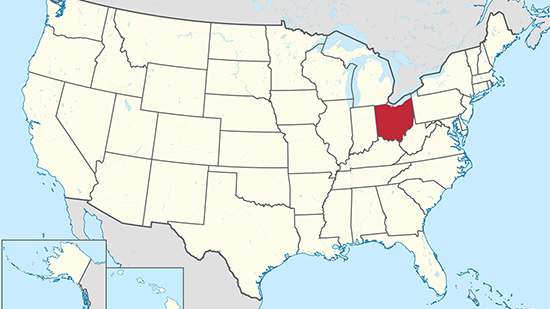Ohio: Payday Lenders Skirted Regulation by Calling Themselves Mortgage Lenders or Credit Service Organizations

In Ohio, Lenders Ignored Rate Caps And Continued To Issue Payday Loans Under Mortgage Or Other Lending Licenses That Were Never Created For That Purpose.
“By 2008, it became clear, even to Ohio’s legislators, that payday loans, while lucrative for lenders, were toxic for borrowers. So a bipartisan group of legislators revoked the exemption and created the Short Term Lending Act, which outlawed two-week loans and capped interest rates at 28 percent. Except, as the Supreme Court pointed out Wednesday, legislators bungled the job. As early as 2009, it became clear that payday lenders simply ignored the new lending license. Instead, they continued to issue payday loans under mortgage or other lending licenses that were never created for that purpose. But legislative efforts to address the loophole payday lenders used to issue these payday clones repeatedly fizzled.” [Cleveland Plain Dealer, 6/13/14]
- Payday Lenders Continued To Charge Triple Digit Interest Rates On Loans In Ohio By Becoming Licensed As Mortgage Or Credit Organizations. “When Ohio capped interest rates on short-term loans at 28 percent in 2008, payday lenders ignored the law en masse. They claimed that by becoming licensed as mortgage lenders or credit organizations they could continue charging triple-digit interest rates loans. The Ohio Department of Commerce allowed lenders to take out the alternative licenses, saying it had little power to stop them.” [Cleveland Plain Dealer, 6/12/14]
- Payday Lenders Skirted Ohio’s 2008 Short Term Lender Act That Caps Interest Rates By Issuing Triple Digit APR Loans Under The Mortgage Loan Act. “Payday lenders began skirting the 2008 Short Term Lender Act, issuing loans under the Mortgage Loan Act, which doesn’t cap interest rates and demands that loans be repaid in a single installment. The result? Some consumers are facing interest rates in the triple digits. You read that right. Triple digits.” [Crain’s Cleveland Business, 6/23/14]
- The Ohio Supreme Court Upheld Payday Lenders Ability To Continue To Do An End-Run Around Payday Lending Laws. “Payday lenders can continue making high-cost, two-week loans in Ohio, the Ohio Supreme Court ruled Wednesday, declining to close a loophole in state law. In a face-off between payday lenders and consumer advocates that had been brewing since voters approved payday loan caps in 2008, the court ruled that lenders can indeed do an end-run around the voter-approved Short Term Lending Act by issuing what essentially are payday clones under another law. The Supreme Court said that the Mortgage Loan Act allows lenders to make installment loans due in a single payment.” [Cleveland Plain Dealer, 6/12/14]
- After Ohio’s Payday Lending Law Passed, Payday Lenders Started To Offer Title Loans With Fees And Interest Rates As High As 300%. “Storefront and online lenders are offering a new form of expensive credit – with fees and interest rates totaling more than 300 percent in some cases – by exploiting the same legal loopholes used to sidestep voter-approved rate caps on standard payday loans, a Dayton Daily News investigation found. “Auto title loans” give borrowers quick and easy access to cash but at a steep price. Not only do the agreements carry high fee and interest costs – far above the 28 percent rate ceiling that Ohio voters endorsed for short-term loans in 2008 – but consumers risk having their vehicles repossessed. Long popular in states such as Texas and Illinois, auto title lending is spreading across Ohio with more than 20 stores in the Miami Valley alone. Lenders promise 30-day loans of $100 up to $10,000, using the title to the borrower’s vehicle as collateral.” [Dayton Daily News, 12/16/12]
- Payday Lenders In Ohio Sidestepped Rate Caps By Licensing Under The Second Mortgage Loan Act Or The Credit Services Organization Act Which Were Never Designed For The Payday Lending Industry. “Payday and auto title lenders sidestep the strict limits imposed by the Short Term Loan Act by licensing their businesses under the Second Mortgage Loan Act or the Credit Services Organization Act. Both laws permit fees on top of whatever interest rate is charged. The Second Mortgage Loan Act was originally designed for borrowers taking out a cash loan with their house put up as security. The CSO act was aimed at regulating the credit repair businesses that collected fees but did little to help consumers consolidate debt or clear up credit blemishes. Now payday lenders licensed as CSOs offer to help borrowers repair their credit by obtaining a payday or auto title loan.” [Dayton Daily News, 12/16/12]
